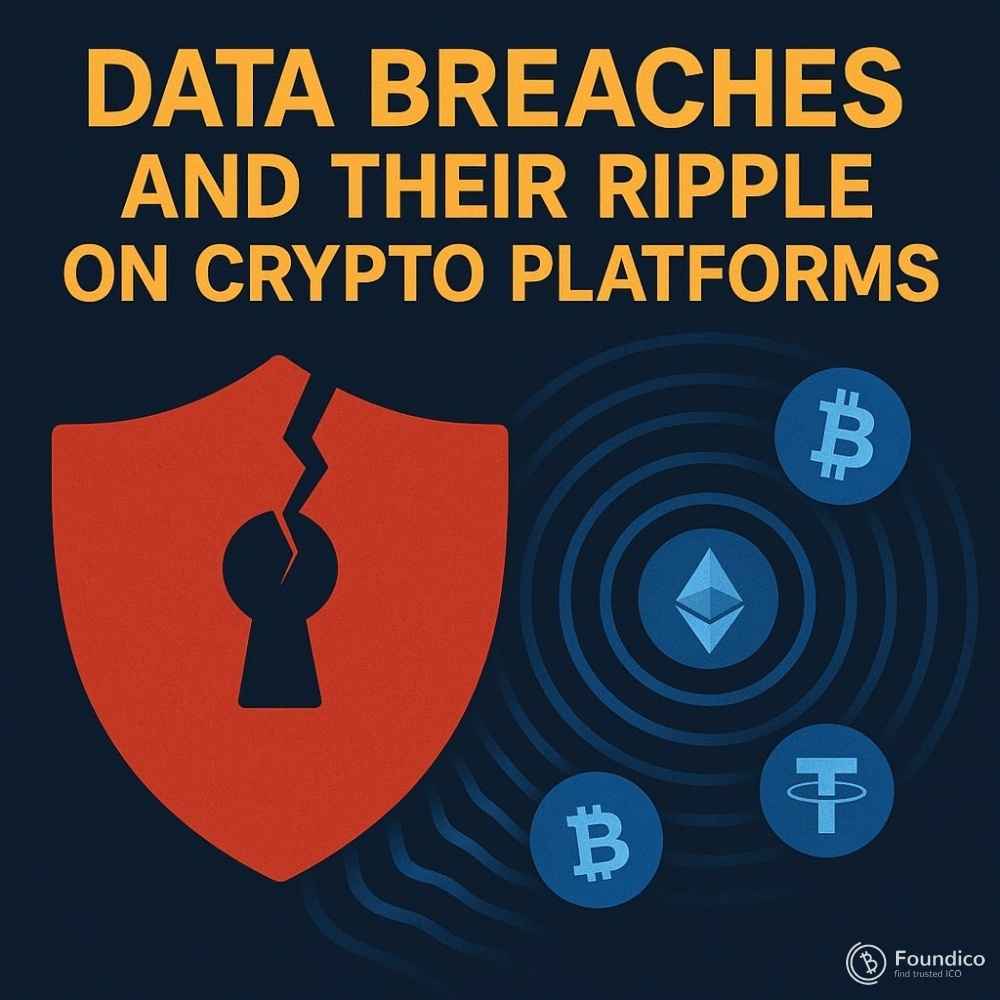Data Breaches and Their Ripple Effect on Crypto Platforms

By Dr. Pooyan Ghamari, Swiss Economist and Visionary
The cryptocurrency industry has rapidly evolved into a cornerstone of modern finance, attracting billions in daily trading and millions of users worldwide. However, its growth has also made it a prime target for cybercriminals. Among the most damaging threats are data breaches—incidents where sensitive information or digital assets are exposed. In the crypto ecosystem, these breaches are more than simple disruptions; they can undermine entire platforms, shake market confidence, and reshape regulatory landscapes.
Why Data Breaches Hit Crypto Harder
In traditional banking, fraud and theft are serious but often reversible through legal and institutional safeguards. In contrast, cryptocurrency transactions are irreversible. Once an attacker gains access to private keys or exchange wallets, stolen funds are almost impossible to recover. This makes data breaches not only costly but potentially existential for the platforms involved.
Moreover, the ethos of decentralization often leads to lighter oversight compared to conventional financial institutions. While this promotes innovation, it also leaves gaps that attackers exploit.
The Fallout of a Breach
Financial Damage
Losses from breaches can reach into the billions, draining reserves and leaving users uncompensated.
Erosion of Trust
Trust is the lifeblood of exchanges and wallets. A single incident can push users to abandon a platform permanently, driving liquidity elsewhere.
Market Instability
News of a major breach often triggers panic across the wider market. Sell-offs and price drops can follow, affecting even coins and platforms not directly involved.
Regulatory Pressure
High-profile breaches force regulators to step in, leading to stricter rules and compliance costs. While necessary for security, these measures can slow down innovation.
Long-Term Reputational Damage
Rebuilding credibility after a breach is a long and difficult process. Some platforms never recover, serving as warnings to others.
Lessons from the Past
From Mt. Gox to more recent exchange hacks, history shows how devastating breaches can be. Each incident reinforces the need for robust security protocols and continuous vigilance. They also highlight the fact that even large, well-funded platforms are not immune. The crypto sector has learned, often painfully, that security must be prioritized at the same level as innovation.
Strengthening Defenses
The path forward requires layered protection:
-
Keeping the majority of assets in offline cold storage.
-
Enforcing multi-factor authentication for all accounts.
-
Conducting frequent, independent security audits.
-
Establishing clear crisis response strategies to limit damage.
-
Exploring decentralized custody models to reduce single points of failure.
Education is equally important. Users must understand that safeguarding private keys and using secure practices are essential to their financial safety.
A Turning Point for the Industry
Data breaches are shaping the future of cryptocurrency in two directions. On one hand, they discourage investors and fuel skepticism. On the other, they push the industry to mature, adopt better standards, and integrate advanced cybersecurity measures. Paradoxically, each breach accelerates the evolution of the ecosystem toward greater resilience.
The impact of data breaches on cryptocurrency platforms goes far beyond stolen coins. They challenge the credibility of an entire industry, fuel volatility, and invite tighter regulation. For cryptocurrencies to achieve their vision of financial empowerment and independence, platforms must put security at the center of their operations.
Only by combining technological safeguards, governance frameworks, and user awareness can the crypto world build the trust necessary to thrive in the long run.
About the Author
Dr. Pooyan Ghamari is a Swiss economist and visionary, specializing in blockchain, governance, and global financial innovation. His work explores how decentralized systems can be strengthened against emerging risks while shaping the future of digital finance.
